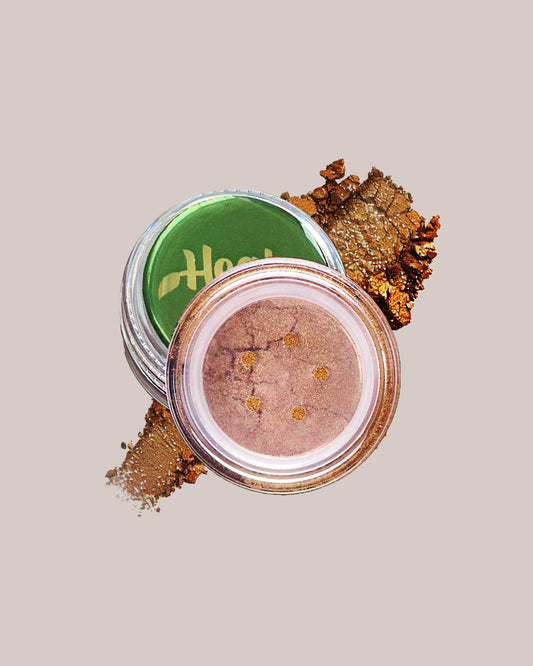Both MTHFR and COMT genes affect brain chemistry, immune health, inflammation, energy production, cardiovascular health and more. This cheek swab test can help determine if you have common variants of either gene.
When methylation is working, it helps you feel full of energy, in a good mood, and just generally well! When it is not working, you can feel tired, depressed, irritable, run-down, susceptible to infections, foggy-brained, and just plain "toxic." This genetic methylation profile looks for gene variants (also called SNP's) of the following two enzymes:
-
MTHFR - (5,10-methylenetetrahydrofolate reductase)
- Research has shown that some people may be at risk of methylation insufficiency due to reduced MTHFR enzyme function.1
- Two common variants in the MTHFR gene (C677T and A1298C) may contribute to increased levels of homocysteine, a known risk factor for heart disease, atherosclerosis2 and venous thrombosis.3
- Those with a genetic variant in MTHFR will have varying levels of difficulty creating the active form of folic acid which is the important form the body needs to function properly.
- Maintaining levels of activated folate may also aid in preventing depression.4-6
- Those with a genetic variant in MTHFR should consider taking activated folate vs. regular folic acid.
- The best genotype to have in the C677T position is CC since it contains no variants. The worst genotype to have in this position is TT since it contains two copies of the variant.
- The best genotype to have in the A1298C position is AA since it contains no variants. The worst genotype to have is CC since it contains two copies of the variant.
-
COMT - (Catechol-O-methyltransferase)
- A common variant in COMT, the conversion of the amino acid valine to methionine at position 158 causes a dramatic reduction in its ability to break down neurotransmitters.7-9
- Since COMT is central to dopamine metabolism, variants are associated with lowered stress resiliency, increased sensitivity to pain10,11 and the propensity to worry.
- COMT also plays a role in estrogen metabolism and may lower the cancer-causing potential of metabolites.12
- The wildtype genotype is GG (Val/Val) since it contains no variants. The homozygous mutated genotype is AA (Met/Met) since it contains two copies of the variant.
The following documents provide a full set of instructions for completing the test: Instructions
Results take 2-3 weeks from when specimen is received. This test is not available in Pennsylvania. The results for this test can only be received via mail, e-mail, or fax. Since gene variants do not change over time, each person needs to be tested only once in their lifetime.
Although gene variants do not change over time, understanding them allows you to choose diet, supplementation and lifestyle changes to support good health. Genetic testing allows you to see inside your own DNA in order to draw a personalized map regarding imbalances that might impact your health. Genetic variants are simply pieces of a much larger puzzle that allow you to see "potential" risks and take action in a preventative fashion.
Sample reports: MTHFR and COMT
References
Weisberg, I et al. A second genetic polymorphism in methylene tetrahydrofolate reductase (MTHFR) associated with decreased enzyme activity. Mol Genet Metab. 1998; 64:169–72.
Frosst, P et al. A candidate genetic risk factor for vascular disease: a common mutation in methylenetetrahydrofolate reductase. Nat Genet. 1995; 10:111–3.
Gemmati, D et al. C677T substitution in the methylenetetrahydrofolate reductase gene as a risk factor for venous thrombosis and arterial disease in selected patients. Haematologica. 1999; 84(9):824–8.
Lok A. et al. The one-carbon-cycle and methylenetetrahydrofolate reductase (MTHFR) C677T polymorphism in recurrent major depressive disorder; influence of antidepressant use and depressive state? Journal of Affective Disorders. 2014; 166:115 - 123.
Gilbody S et al. Methylenetetrahydrofolate reductase (MTHFR) genetic polymorphisms and psychiatric disorders: a HuGE review. Am J Epidem. 2007; 165:1-13.
Lewis SJ et al. The thermolabile variant of MTHFR is associated with depression in the British Women’s Heart and Health Study and a meta-analysis. Molec Psychiat. 2006; 11:352-360.
Enoch MA et al. Genetic origins of anxiety in women: a role for a functional catechol-O-methyltransferase polymorphism. Psychiatr Genet. 2003; 13:33-41.
Woo JM et al. The association between panic disorder and the L/L genotype of catechol-O-methyltransferase. J Psych Res. 2004; 38:365-370.
Smolka MN et al. Catechol-O-Methyltransferase val158met genotype affects processing of emotional stimuli in the amygdala and prefrontal cortex. J Neuro Sci. 2005; 25:836-842.
Janicki PK. Pharmacogenetics of Pain Management. Comprehensive Treatment of Chronic Pain by Medical, Interventional, and Inegrative Approaches. Edited by TR Deers. American Academy of Pain Medicine. 2013.
Zubieta JK et al. COMT val158met Genotype Affects mu-opiod Neurotransmitter Responses to Pain Stressor, Science. 2003; 299(5610):1240-1243.
Ball P and R Knuppen. Catecholoestrogens (2-and 4-hydroxyoestrogens); chemistry, biogenesis, metabolism, occurrence and physiological significance. Acta Endrocrinol. Suppl. (Copenh). 1980;232:1-127.
†The laboratory services are for informational purposes only. It is not the intention of Heal Yes! and National Diagnostics, Inc., and Life Extension to provide specific medical advice but, rather, to provide users with information to better understand their health. Specific medical advice including diagnosis and treatment will not be provided. Always seek the advice of a trained health professional for medical advice, diagnosis or treatment. Both the physician and the testing laboratory are independent contractors with whom Heal Yes! outsources with National Diagnostics, Inc., who makes arrangements for your blood tests. Neither Heal Yes! nor National Diagnostics, Inc., nor Life Extension will be liable for any acts or omissions of the physician, the testing laboratory, or their agents or employees. See our disclaimers and terms.
†These statements have not been evaluated by The Food and Drug Administration. This product is not intended to diagnose, treat, cure or prevent any disease.









